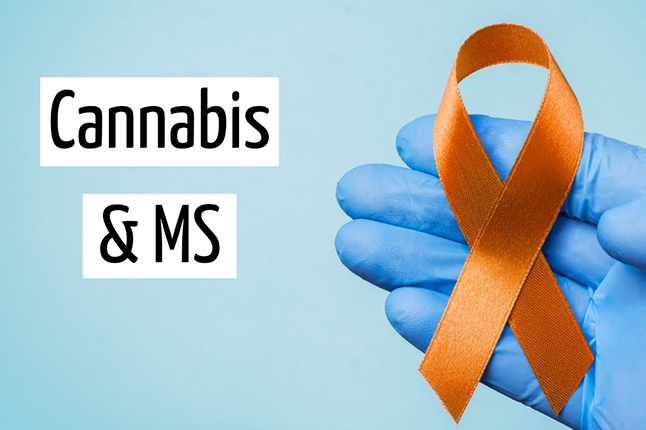Multiple sclerosis, or MS, is the most common neurological disease in the world, affecting more than a million Americans. MS damages nerves in the central nervous system, causing a variety of symptoms that include fatigue, and problems with vision, walking, and balance. Treatment for MS can include physical therapy and medications, but recent research suggests that cannabis may help to relieve symptoms and slow the progress of the disease.
The origins of MS are still a mystery. Researchers believe that it may be an autoimmune disease, caused by the immune system attacking its own cells. Most cases occur in the Northern hemisphere, and most often in people of Northern European descent. Women are more likely to develop it than men. MS causes damage to myelin, a protein sheath that protects nerve fibers in the brain and spinal cord. As the myelin sheath degrades, the nerves themselves become damaged. That causes a variety of symptoms, depending on the location of the damage.
Because MS can affect nerves and neural pathways in various areas of the brain and central nervous system, it can affect people in different ways and mimic the symptoms of other conditions. That can make MS hard to diagnose, since there is no test for the disease. Typical symptoms include problems with vision, balance, and hearing, as well as numbness or tingling in the limbs. Some people have loss of taste and smell, headaches, or short-term memory loss. Many MS patients also have pain.
Several forms of MS have been identified, which can also cause confusion. In some cases, MS remains mild, and symptoms remain stable over time, but in others, people can experience progressive and debilitating nerve damage. There is currently no cure for MS, treatments focus on reducing damage to nerves and maintaining as much functioning as possible. Medications from several different classes of drugs can help to protect nerve sheaths by reducing inflammation, and other therapies focus on helping MS patients stay as active as possible.
It’s estimated that nearly half of people known to have MS have tried cannabis to relieve their symptoms. Research indicates that cannabis appears to have neuroprotective and anti-inflammatory properties. Which means it may be able to protect myelin from degrading, and support healthy nerve functioning. Some studies on cannabis and the brain also suggest that cannabis might support neurogenesis, the process of creating new neurons and neural pathways.
Cannabis compounds, including CBD and THC, bind to naturally occurring cannabis receptors in the endocannabinoid system – a network of cells throughout the body that respond in similar ways both to natural cannabinoids and those from outside sources, like the cannabis plant.
In that way, cannabis can affect signaling in the brain and central nervous system to improve mobility and relieve pain, as well as mood disorders that often accompany multiple sclerosis, such as anxiety and depression. In a process called the entourage effect, more than 100 compounds in the cannabis plant can work together to provide the most benefits.It’s estimated that nearly half of people known to have MS have tried cannabis to relieve their symptoms. Research indicates that cannabis appears to have neuroprotective and anti-inflammatory properties. Which means it may be able to protect myelin from degrading, and support healthy nerve functioning. Some studies on cannabis and the brain also suggest that cannabis might support neurogenesis, the process of creating new neurons and neural pathways.
Cannabis compounds, including CBD and THC, bind to naturally occurring cannabis receptors in the endocannabinoid system – a network of cells throughout the body that respond in similar ways both to natural cannabinoids and those from outside sources, like the cannabis plant.
In that way, cannabis can affect signaling in the brain and central nervous system to improve mobility and relieve pain, as well as mood disorders that often accompany multiple sclerosis, such as anxiety and depression. In a process called the entourage effect, more than 100 compounds in the cannabis plant can work together to provide the most benefits.
Multiple sclerosis is a qualifying condition for Medical Marijuana in Utah. To get your Medical Marijuana Card, you’ll need to meet with a medical provider who can certify your qualifying condition and enter your information into the state user database. For more information or a consultation, schedule an appointment with us today.
